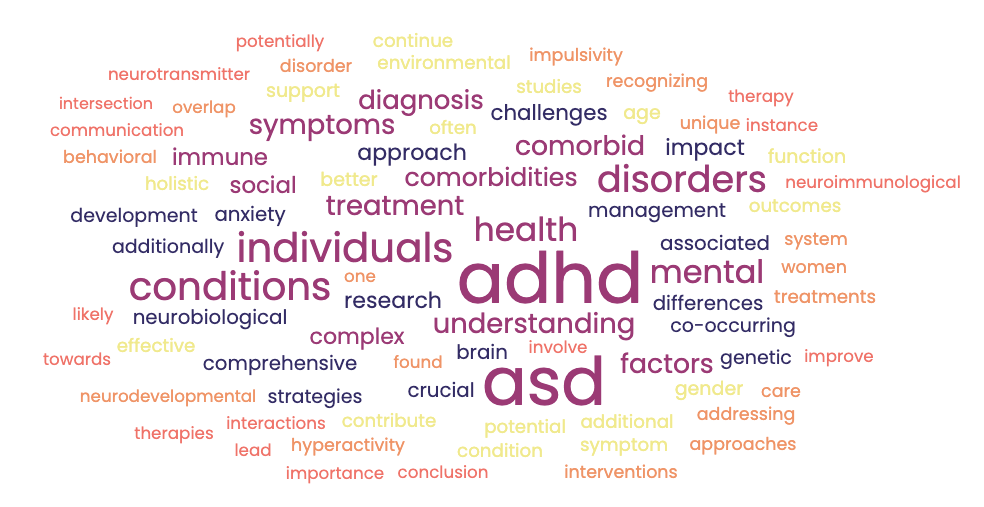Exploring the Efficacy of Therapy in Managing Anxiety
Anxiety, a term as common as it is complex, affects millions worldwide, with its presence felt across cultural and socio-economic lines. But while it may feel like a seemingly inescapable shadow, relief is not out of reach. This comprehensive guide explores how therapy can be a beacon of hope for those navigating the labyrinth of anxiety.
The Ubiquity of Unrest: Understanding Anxiety’s Reach
At its core, anxiety is our body’s natural response to stress. But when this response becomes chronic, overwhelming, or disproportionate to the trigger — that’s when it escalates into a disorder. Anxiety disorders are surprisingly common, impacting over 40 million adults in the United States alone. The number paints a stark picture of how pervasive anxiety is, capturing individuals in a perpetual whirlwind of worry, stress, and fear.
With such prevalence, it’s crucial to peel back the layers of anxiety, understanding its nuances to craft effective interventions. Anxiety takes various forms — from generalized anxiety disorder (GAD) and panic disorder, to phobias and social anxiety. Each type has its telltale signs and unique challenges, yet they are bound by the common thread of mental unease and the desire for alleviation.
The Healing Path: Therapy as a Tool for Tranquility
When discussing the management of anxiety, therapy stands as a beacon of hope, illuminating the path to a peaceful mind. Therapy is a multifaceted approach, tailored to the individual, and it’s the collaborative nature of therapy that often leads to the most significant breakthroughs. In the realm of anxiety, therapies like Cognitive Behavioral Therapy (CBT), Dialectical Behavior Therapy (DBT), and Exposure Therapy have emerged as pillars of support.
CBT, one of the most widely recognized and researched forms of therapy, focuses on identifying and altering negative thought patterns that contribute to anxiety. DBT, a modification of CBT, adds the element of acceptance and mindfulness, ideal for conditions such as borderline personality disorder and chronic suicidal ideation.
In the case of Exposure Therapy, patients confront their fears in a controlled setting, gradually desensitizing their anxiety response. These are just the tip of the iceberg; an array of therapeutic techniques exists, each aiming to arm individuals with the tools to tame their inner turmoil.
Unraveling Anxiety’s Grip Through Therapeutic Techniques
Therapeutic techniques for anxiety are as diverse as the individuals seeking solace in their application. They can be broadly categorized into behavioral and emotional strategies, each playing a crucial role in the therapeutic process.
Cognitive Behavioral Therapy (CBT)
Cognitive Behavioral Therapy (CBT) is a highly effective treatment for anxiety, rooted in the premise that our thoughts, feelings, and behaviors are interconnected. By changing negative thought patterns and irrational beliefs, CBT helps individuals cope with anxiety more effectively. The process typically involves several steps. First, individuals work with their therapist to identify specific thought patterns and beliefs that contribute to their anxiety. Through techniques like cognitive restructuring, clients learn to challenge these negative thoughts and replace them with more realistic and positive alternatives. Additionally, CBT often incorporates behavioral experiments that test these beliefs against reality, providing concrete evidence against the negative assumptions fueling anxiety. Homework assignments between sessions encourage clients to apply these strategies in real-life situations, gradually building their confidence and reducing anxiety symptoms. This structured, hands-on approach makes CBT a practical and powerful tool in unraveling the complex web of anxiety.
Behavioral Strategies
Behavioral strategies center on identifying and modifying anxious behaviors. Techniques like relaxation training, systematic desensitization, and exposure therapy are widely employed with impressive success rates. Relaxation training teaches individuals to recognize and release tension in their bodies, effectively subduing physiological manifestations of anxiety.
Systematic desensitization takes a methodical approach to confronting fears. Here, patients create a hierarchy of anxiety-provoking situations and work, step by step, to conquer them through gradual exposure, with the support and guidance of their therapist. Exposure therapy, on the other hand, exposes individuals to their fears in a controlled environment, effectively chipping away at the power of anxiety triggers.
Emotional Strategies
On the emotional front, the focus is primarily on cognitive restructuring, a process that transforms negative thought patterns associated with anxiety into more balanced and rational ones. Mindfulness and meditation also feature heavily, promoting an attentive and nonjudgmental awareness of the present — a powerful antidote to the ceaseless rumination that characterizes anxiety. Other techniques like journaling, self-talk, and guided imagery serve as valuable tools for managing and mitigating anxiety’s impact.
Confronting the Unseen Barrier: Stigma and Misconceptions of Anxiety Therapy
Despite the evidence supporting the efficacy of therapy, a formidable barrier remains — the stigma attached to mental health treatment. The fear of judgment, doubts about efficacy, and lack of understanding are just a few bricks in this barrier’s wall. It’s a misconception that warrants dismantling, for therapy offers a safe space for growth, devoid of judgment, and rich with tools for transformation.
A candid discussion about therapy can go a long way in dispelling myths and quieting doubts. Sharing the experiences of those who’ve successfully navigated their anxiety through therapy can humanize the process, making it more approachable for others grappling with similar challenges.
Navigating the Therapeutic Landscape: How to Find a Suitable Counselor
The journey to anxiety-free living often commences with the search for a suitable therapist; a guide who will walk beside you as you chart the course towards inner peace. Finding the right therapist is a deeply personal process, one that involves considering various factors, such as their approach, specialization, and your comfort in their presence.
Researching Your Options
Begin by researching therapists in your area, focusing specifically on those who specialize in anxiety disorders. Reviews and referrals from trusted sources can offer valuable insights into a therapist’s reputation and patient satisfaction. Additionally, consider the therapist’s theoretical orientation and approach to determine if it aligns with your needs.
The Initial Consultation and Building a Connection
Once you’ve narrowed down your options, schedule an initial session to get a feel for their style and demeanor. A strong therapeutic alliance is vital, so take the time to assess if the therapist feels like a good fit for you. Don’t be afraid to ask questions and share your concerns; a skilled therapist will welcome open communication and work towards building trust from the onset.
Treat the first few sessions as a consultation; it’s an opportunity to gauge whether the therapist and their proposed treatment plan align with your needs and preferences. Trust your instincts; therapy is a partnership, and a strong therapeutic alliance is crucial for success. If the first therapist doesn’t feel like the right fit, don’t be discouraged; keep exploring until you find the best match.
Seeking Sanctuary in Therapy
Deciding to seek therapy for anxiety is a brave step towards a more peaceful existence. It’s a voyage of self-discovery, where reflection and action coincide, nurturing resilience and fostering well-being.
Preparing for Your Journey
Mental preparation is key; approach therapy with an open mind and commitment to the process. Prepare to engage in activities outside of sessions, as much of the healing process occurs through the integration of therapeutic techniques into daily life.
Destigmatizing Mental Health
Participating in the larger conversation about mental health can be a form of activism. By sharing your story and the benefits of therapy, you not only empower yourself but contribute to a culture that values and supports mental wellness.
Sowing the Seeds of Serenity
The verdict on whether therapy can help with anxiety is resounding — it not only helps but also offers a lasting reprieve for those willing to engage in the process. By integrating the power of therapy into your anxiety management plan, you not only equip yourself with the skills to overcome immediate concerns but also lay the foundation for a future steeped in tranquility.
To discover more on how therapy can help manage your anxiety, reach out to a professional today. Start your journey to peace by seeking the help that affirms your worth and prioritizes your mental well-being. Remember, you are not alone in your struggle, and seeking help is a courageous step towards reclaiming control over your life. The journey may not be easy, but it’s undoubtedly worth it. Keep moving forward, one step at a time, towards a calmer and more fulfilling existence. So don’t hesitate to take that first step; seek therapy today for a brighter tomorrow. It’s never too late to start your journey towards mental wellness.
Let us break the silence and dismantle the stigma surrounding therapy and mental health care. Together, we can create a world where seeking help for anxiety is seen as an act of strength, not weakness. Remember, you are worthy of peace and happiness, and it is within your reach with the right tools and support. Don’t let fear or misconceptions hold you back from living your best life. Seek therapy, seek help, and take control of your mental well-being today. The journey may not be easy, but it is a journey worth taking towards a brighter and happier tomorrow. So don’t hesitate to take that first step; reach out and start your therapeutic journey today.







